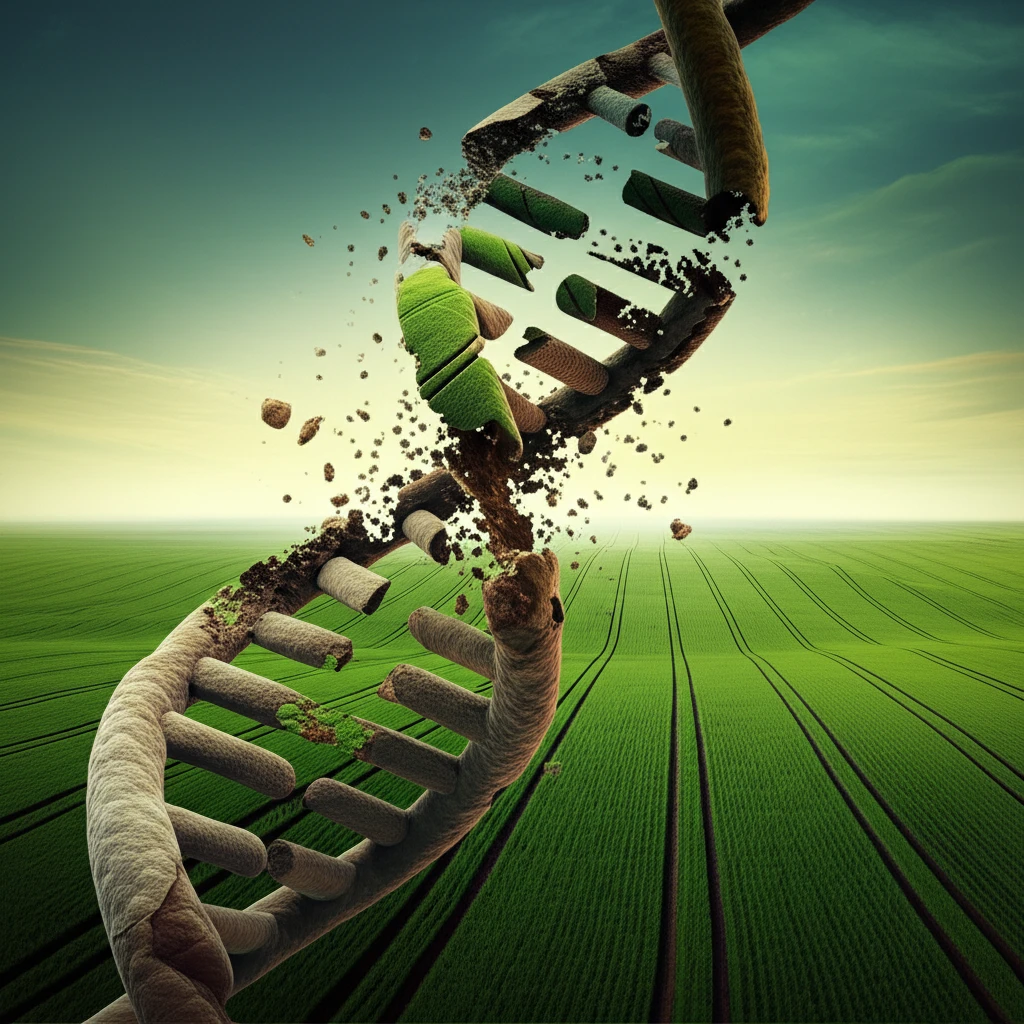
Is Captan Exposure Harming Your Cells? The Hidden Dangers of This Common Fungicide
"Discover how the widely-used fungicide captan could be causing DNA damage and replicative stress in your body, potentially leading to severe health issues."
Captan, a fungicide frequently used in agriculture since 1951, has long been a subject of debate regarding its safety. While it's effective in protecting fruits and crops from fungal diseases, concerns have been raised about its potential carcinogenic effects. Different agencies have varying classifications, adding to the confusion. The International Agency for Research on Cancer (IARC) classifies captan as 'Not classifiable as to its carcinogenicity to humans,' while other regulatory bodies have, at times, considered it a possible human carcinogen.
Recent studies have started to shed light on how captan affects our cells at a DNA level. Research indicates that exposure to captan can lead to DNA base alterations and replicative stress in mammalian cells. This means that captan could be interfering with the way our cells replicate and repair their DNA, potentially leading to long-term health consequences. Understanding these mechanisms is crucial for assessing the true risk of captan exposure and developing strategies to mitigate its harmful effects.
This article delves into the latest findings on captan's genotoxic effects, explaining how it interacts with our cells and the potential implications for our health. We'll explore the specific ways captan can damage DNA, cause replicative stress, and the cellular responses that are triggered as a result. By understanding these complex processes, we can make more informed decisions about minimizing our exposure to this common fungicide.
How Does Captan Damage DNA and Cause Cellular Stress?

A groundbreaking study has revealed the specific ways in which captan can harm our cells. Researchers found that when mammalian cells are exposed to captan, they accumulate Fpg-sensitive DNA base alterations. These alterations are essentially damages to the building blocks of our DNA, making it difficult for cells to function properly. The study, conducted on Chinese Hamster Ovary (CHO) and HeLa cells, further revealed that these DNA lesions require a specific repair pathway, known as the XRCC1-dependent pathway, to be fixed.
- Fpg-Sensitive DNA Alterations: Damages to the DNA's building blocks that interfere with normal cellular function.
- XRCC1-Dependent Repair Pathway: A specific cellular mechanism needed to repair the DNA lesions caused by captan.
- Replicative Stress: A state where cells struggle to accurately copy their DNA, leading to activation of the ATR signalling response.
- ATR Signalling Response: A cellular alarm system activated by replicative stress, which can lead to double-strand breaks and micronuclei formation.
- Genomic Instability: A condition characterized by an increased rate of mutations and chromosomal abnormalities, potentially leading to cancer.
Protecting Yourself from Captan Exposure
While the research highlights the potential dangers of captan, it's important to remember that more studies are needed to fully understand its long-term effects on human health. However, taking proactive steps to minimize exposure is always a good idea. This includes washing fruits and vegetables thoroughly, especially if they are not organically grown. Staying informed about the latest research and regulatory updates can also help you make informed decisions about your health and safety. If you have concerns about captan exposure, consult with a healthcare professional for personalized advice and guidance.
